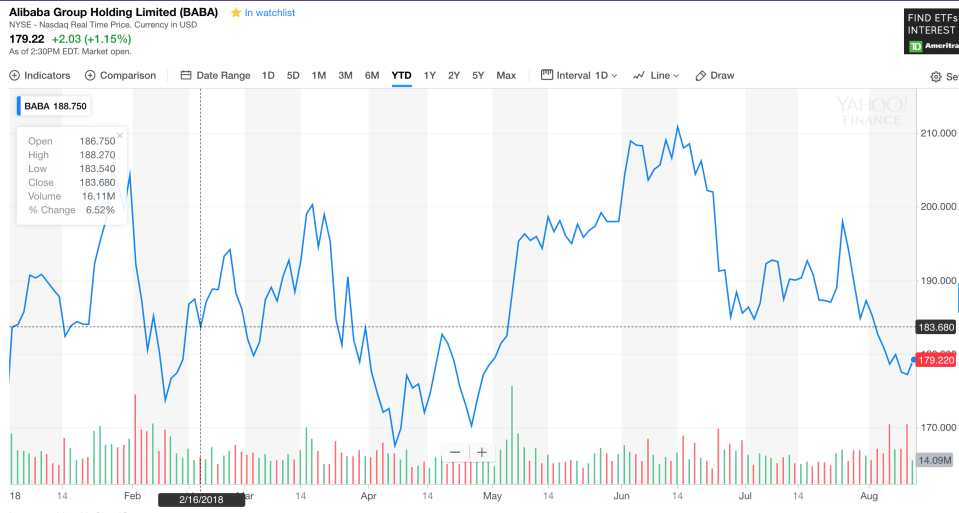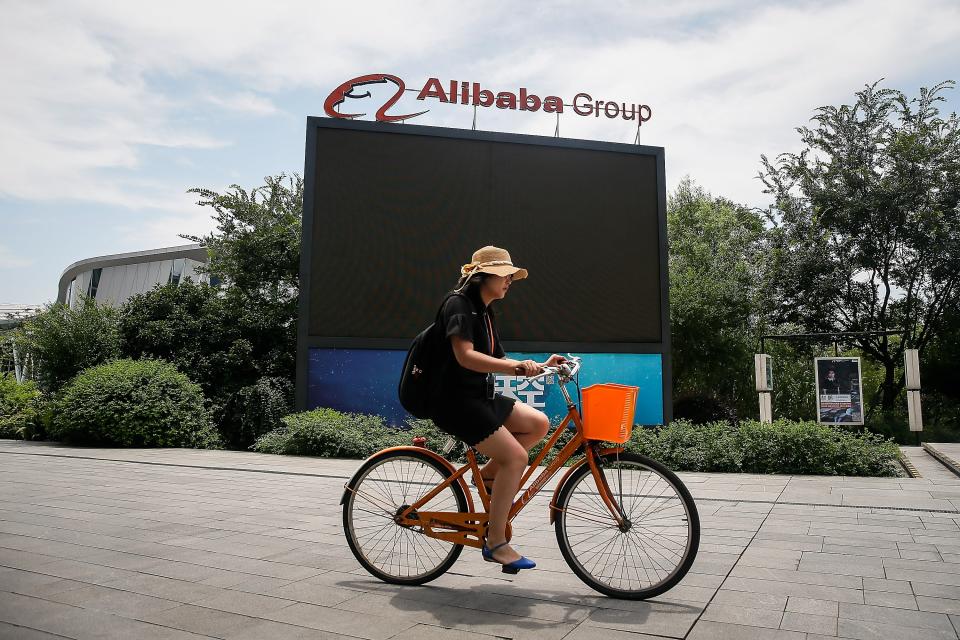A look at Alibaba's Amazon Prime-like loyalty program
China’s e-commerce giant Alibaba (BABA) unveiled this week its version of Amazon Prime — a subscription-based loyalty program called 88VIP.
88VIP subscribers can enjoy a 5% discount on certain brands on Alibaba’s e-commerce sites. They will also have access to YouTube-like video-streaming platform Youku Tudou, Alibaba’s music platform Xiami, plus discounts on food delivery via Ele.me and deals on movie tickets via Alibaba’s booking app Taopiaopiao, just like how Amazon Prime (AMZN) members have free access to Prime Video and Prime Music.
But unlike Amazon, the draw of Alibaba’s new membership program isn’t so much the free two-day delivery. Shipping costs are generally low in China (an average of $2 for each package). Shipping expenses are low because Alibaba relies on third-party carriers instead of owning its logistics and distribution.
So is 88VIP cheaper than Amazon Prime? Well, it depends how often you shop on Alibaba. Only Alibaba users who have 1,000 points can sign up for 88VIP at the cost of 88 yuan ($13) a year. (88, a number usually considered lucky in China, is also pronounced “baba.”)
Alibaba users without enough points have to pay nine times more to become a member — 888 yuan ($129). According to Alibaba, how many points users get is not only decided by how much money they spend on its platforms, but also users’ engagement level, the quality of their reviews and other factors.
Alibaba’s emphasis on engagement differentiates it from other loyalty programs, said Stephen Rector, president of Bakertown Consulting. “It’s usually very much about only what you’ve spent versus the time you’re spending on the platform,” said Rector. “Alibaba believes more time you’re engaging, the more you’re likely to spend in the long run, so it makes sense to reward consumers for their time.”
A new source of revenue?

Amazon’s 1 million Prime subscribers worldwide have revealed how a membership program can boost a company’s bottom line. But for Alibaba, 88VIP is more about taking on Chinese tech behemoth Tencent (TCEHY).
Tencent is known for its ecosystem that features the popular messaging app WeChat, which has 1 billion users worldwide. WeChat has teamed up with JD.com, China’s second largest e-commerce site. By adding shopping and payment features, the social app aims to keep users inside its messaging system longer.
“To compete with Tencent’s compelling ecosystem, Alibaba needs to come up with something more enticing,” Rector said. “By acquiring existing businesses of music and video streaming services, it’s a great way to compete and differentiate themselves from WeChat and JD.com.”

88VIP will also help Alibaba collect consumer data across different platforms. “All the differentiated points will [give Alibaba] a single way to identify customers. This increases the power they already have to identify a customer across their ecosystem, that includes targeting media, content, and offering differentiated selections,” said Danielle Bailey, head of Asia-Pacific research at consultancy L2.
With more than 600 million monthly active users, 88VIP could open a new revenue stream for Alibaba. The impact of the new membership program could be greater than what Prime has done for Amazon.
“Amazon Prime is still a small percentage of U.S. consumers compared to people who are touching the Alibaba ecosystem,” Bailey said. “In China, the penetration [of Alibaba] has been quite high, so the scale will be much different.”
Krystal Hu covers technology and economy for Yahoo Finance. Follow her on Twitter.
Read more:
The real reason why traders are shorting Alibaba
How Apple succeeded in China, where other tech giants have failed
Inside Amazon’s little-known graphic T-shirt-making business


